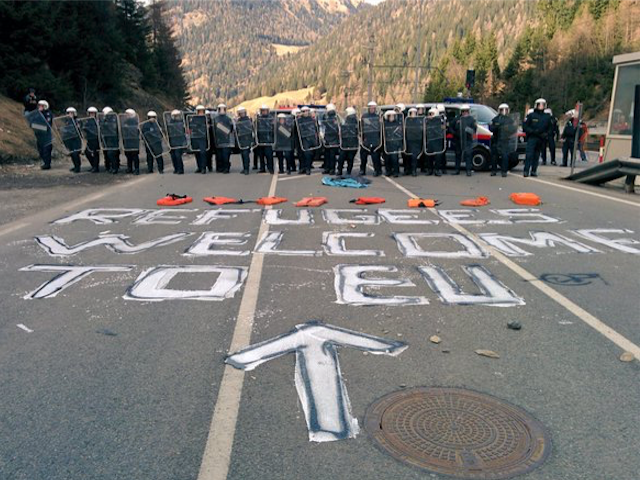(Reuters) – Italy and Austria will strengthen cooperation and controls at their shared border to guarantee free movement through a busy Alpine pass during an expected surge of migrants this summer.
Italian Interior Minister Angelino Alfano and his Austrian counterpart, Johanna Mikl-Leitner, met in Rome a week after Austria had threatened to deploy soldiers at the Brenner pass to prevent the passage of migrants.
The ministers agreed to bolster collaboration “to guarantee fluidity of movement at the Brenner pass and safeguard free movement foreseen by Schengen,” the ministers said in a joint statement, referring to the EU’s open-border treaty.
Earlier on Friday, Austrian media reported that the government planned to toughen controls at the border crossing, a vital north-south passage, on June 1. That was not mentioned in the statement.
More than 300,000 migrants reached Italy by sea in 2014-15. Most took advantage of the EU’s passport-free zone to quickly move on into northern Europe. That prompted border closures that threaten the EU’s Schengen system.
More than 16,000 people made the crossing from North Africa to Italy in the first three months of 2016, some 6,000 more than in the same period last year, according to Italy’s Interior Ministry.
On Thursday, Mikl-Leitner said Austria expects migrant arrivals to Italy by sea to nearly double this year to 300,000. Most of the overcrowded boats are expected to cross during the spring and summer, when the Mediterranean is calmer, Italian authorities say.
“Certain measures are needed … to ensure free travel at Brenner,” Mikl-Leitner said in Rome after the meeting, according to Austria’s APA news agency.
“The Italian government has to ensure that all refugees at hotspots are registered and accommodated nearby. There has to be a clear signal that refugees cannot choose where to be registered,” she said.
Italy has agreed to set up the so-called hotspots, where migrants are held until they agree to be identified, but after identification the country has said it will not hold migrants in “concentration camps”.
There was no specific mention of the hotspots in the statement, but both countries did say there must be “an ambitious reform” of the EU’s so-called Dublin rules, which require migrants to seek asylum in the state where they first enter the bloc.
The EU executive presented a reform proposal for the asylum rules on Wednesday.

COMMENTS
Please let us know if you're having issues with commenting.